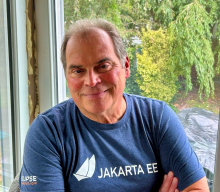Jakarta Enterprise Edition (EE) provides a full suite of specifications that allow developers to build secure and robust enterprise Java applications.
Formally known as Java EE, Jakarta EE has a rich history dating back to 1998. There are 42 specifications in the Jakarta EE ecosystem, however only 30 of these comprise the Jakarta EE Platform.
In this workshop, there will be a brief introduction to Jakarta EE and participants will build and deploy, step-by-step, their own enterprise Java application using Jakarta EE 11 and Payara Micro server. At each step in the process, participants will be introduced to a specification, such as Jakarta Contexts & Dependency Injection, Jakarta Security, Jakarta Data, Jakarta Persistence, Jakarta NoSQL and Jakarta Validation, to name a few.
Key Takeaways
1 Jakarta EE, formerly known as Java EE, is an open-source platform composed of 42 specifications for enterprise Java application development.
2 Each specification has at least one compatible implementation to ensure application portability, security, stability and resiliency. This is achieved by passing a rigorous series of tests known as the Technology Compatibility Kit (TCK).
3 Participants will develop, step-by-step, a secure and robust Java application using some of the Jakarta EE specifications.
4 Participants will generate a Web Application Archive (WAR) file and deploy it on an application server such as Payara Micro.
5 Payara Micro will be used in this workshop, but an application can be deployed to any Jakarta EE-compliant application server.
Speaker

Michael Redlich
Java Champion, Founder @Garden State Java User Group, Editor @InfoQ
Michael Redlich has been an active member within the Java community for the past 25 years. He founded the Garden State Java User Group (formerly the ACGNJ Java Users Group) in 2001 where he serves as one of the directors. Since 2016, Mike has served as a Java community news editor for InfoQ where his contributions include the weekly Java news roundup, news items, technical articles and technical reviews from external authors. He is currently the lead Java Queue editor. Mike joined Payara as a contract Developer Advocate and Technical Writer in the summer of 2023.
He has presented at venues such as Devnexus, Oracle Code One, JCON World, Emerging Technologies for the Enterprise, Trenton Computer Festival (TCF), TCF IT Professional Conference, and numerous Java User Groups. Mike serves as a committer on the Jakarta NoSQL and Jakarta Data specifications and the Eclipse JNoSQL project. He also participates on the leadership council of the Jakarta EE Ambassadors. Mike was named a Java Champion in April 2023.
Mike retired from ExxonMobil Technology & Engineering in June 2023 with 33½ years of service. His experience included developing custom scientific laboratory and web applications, polymer physics, chemometrics, infrared spectroscopy and automotive testing. He also has experience as a Technical Support Engineer at Ai-Logix, Inc. (now AudioCodes) where he provided technical support and developed telephony applications for customers.

